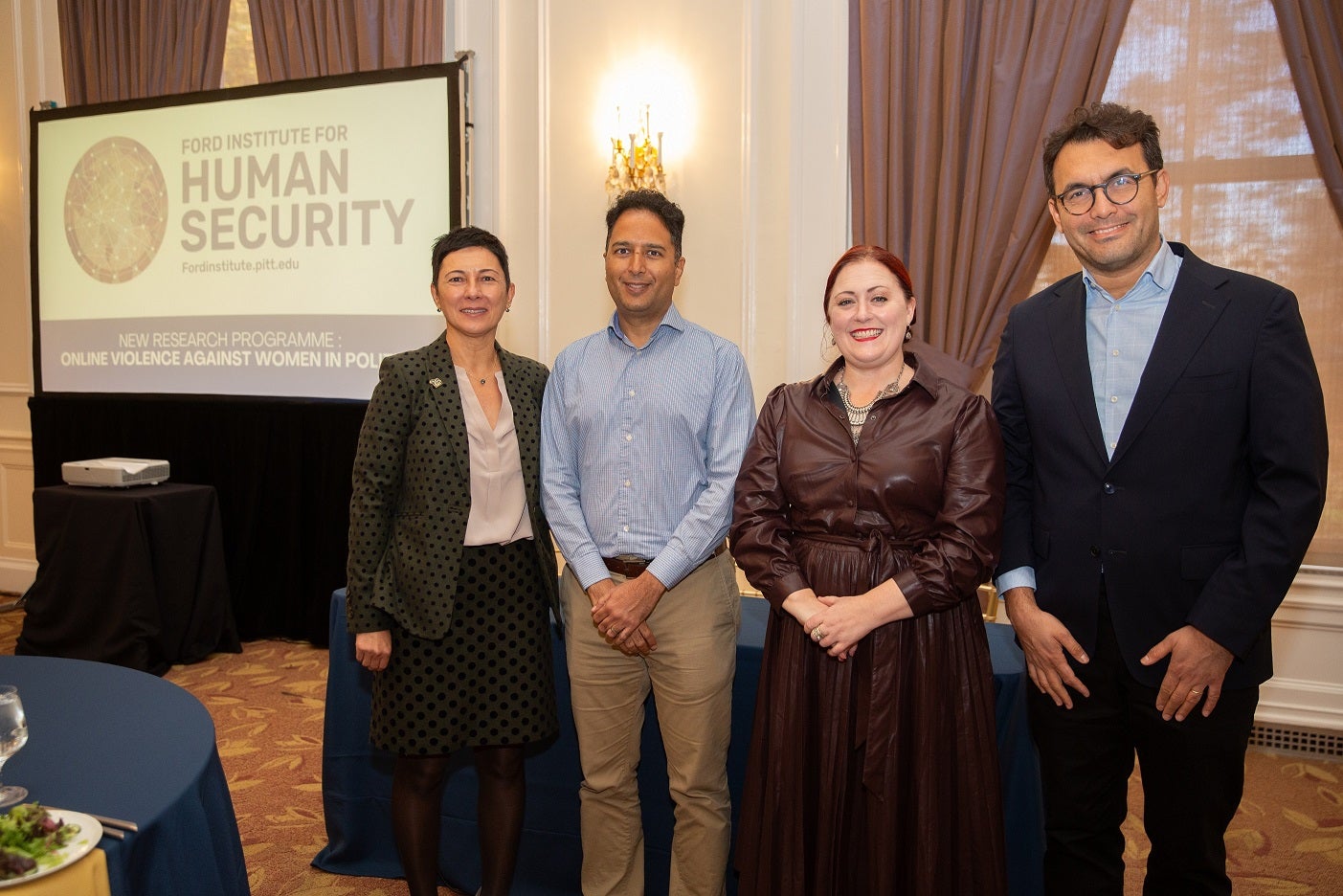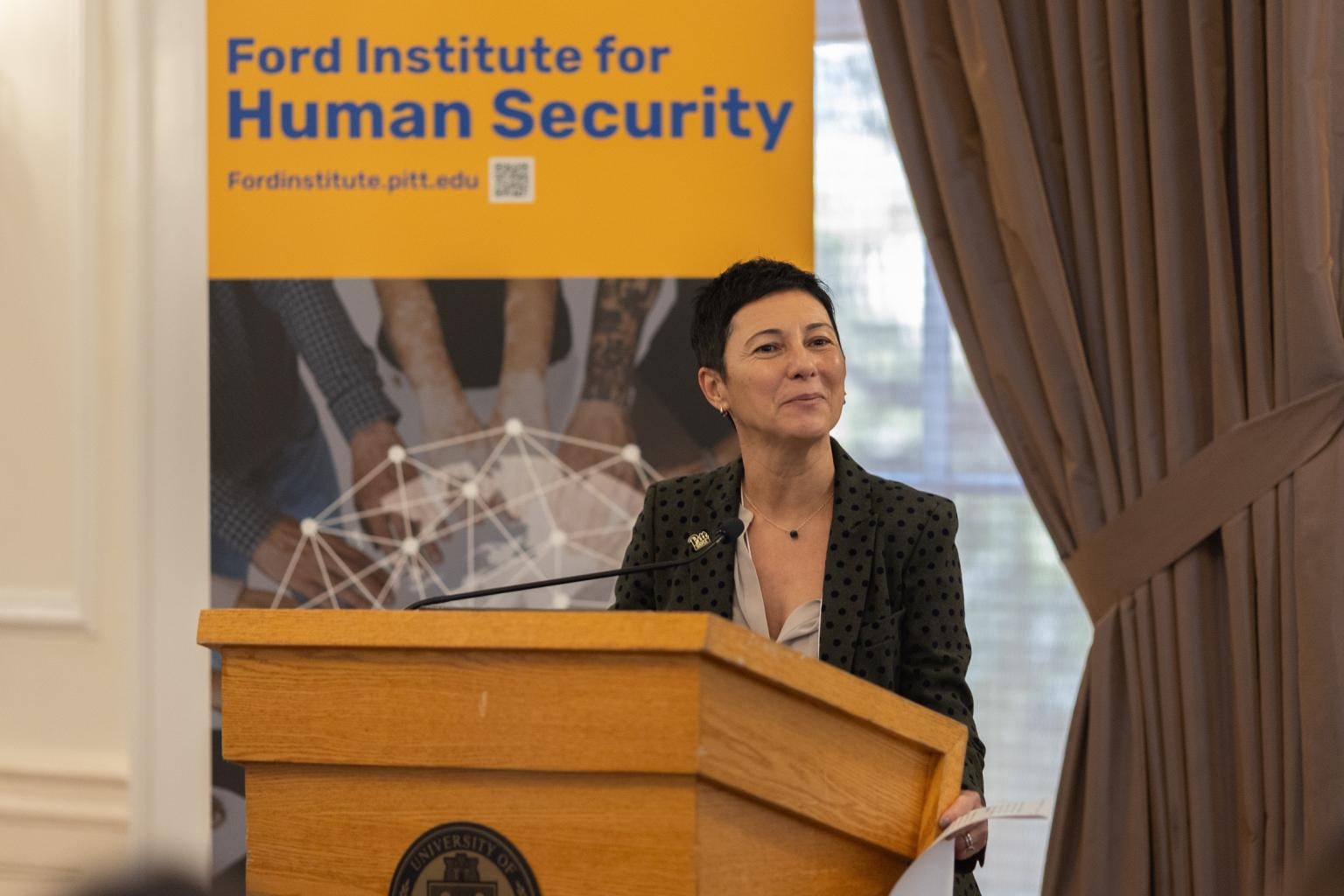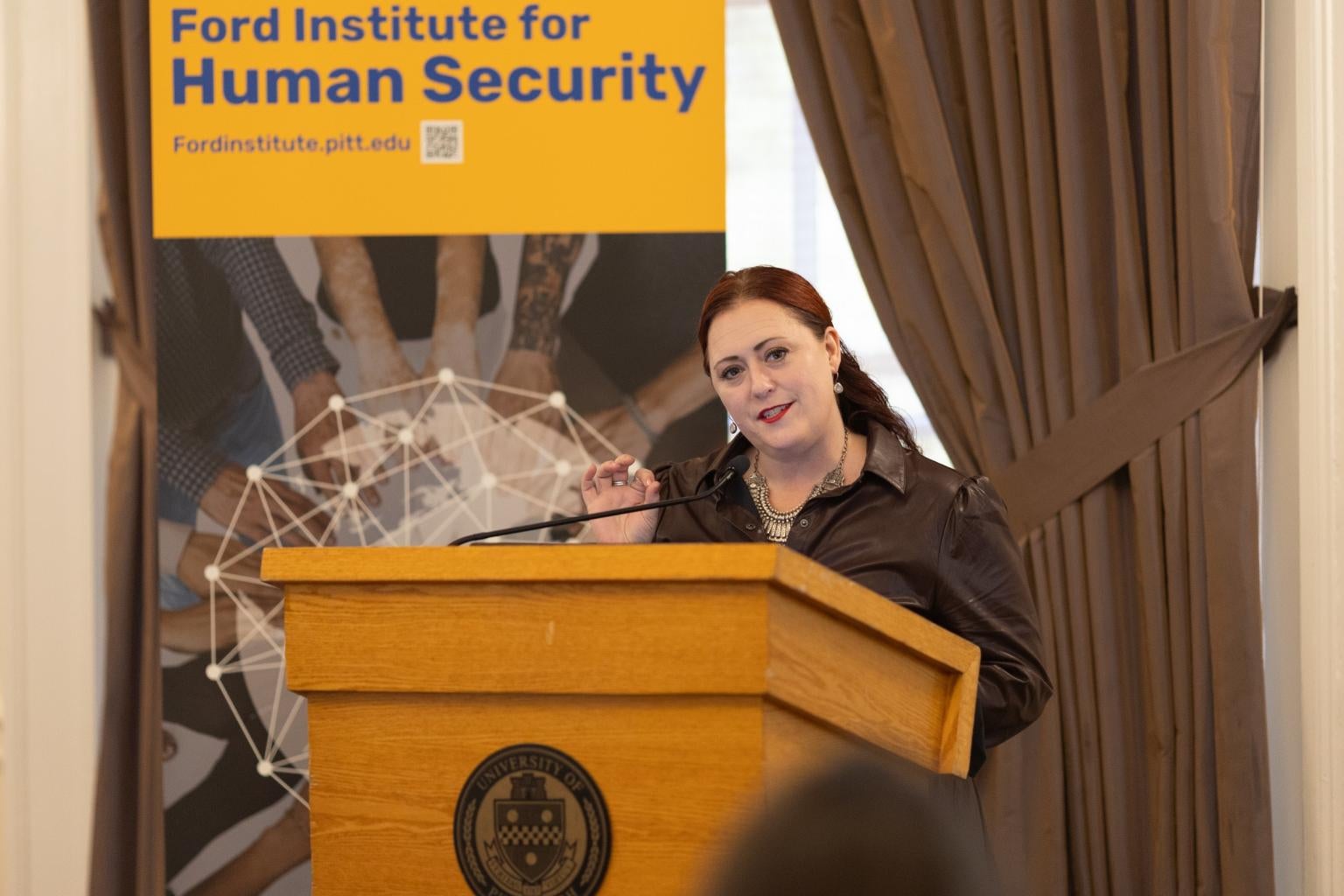 The Ford Institute for Human Security at the University of Pittsburgh recently celebrated its 20thanniversary with an event launching its new research program, “Online Violence Against Women in Politics.” The kickoff event, held on campus last month, featured a keynote speaker and panel discussion.
The Ford Institute for Human Security at the University of Pittsburgh recently celebrated its 20thanniversary with an event launching its new research program, “Online Violence Against Women in Politics.” The kickoff event, held on campus last month, featured a keynote speaker and panel discussion.
Emerging as a field of study following the 1994 United Nations Human Development Report, the concept of human security challenged a longstanding definition of security which concentrated exclusively on the potential for conflict between states or threats to a nation’s borders. Human security instead shifted focus toward a definition that equates ‘security with people rather than territories, with development rather than arms.’
“ We now think of human security as a people-centered field,” explained Dr Müge Finkel, Director of the Ford Institute and Associate Professor at Pitt, in her opening remarks at the event last month. A field concerned in practice and scholarship “with how people live and breathe in a society; how freely they exercise their many choices; how much access they have to opportunities and capabilities – whether they live in conflict or in peace.”
We now think of human security as a people-centered field,” explained Dr Müge Finkel, Director of the Ford Institute and Associate Professor at Pitt, in her opening remarks at the event last month. A field concerned in practice and scholarship “with how people live and breathe in a society; how freely they exercise their many choices; how much access they have to opportunities and capabilities – whether they live in conflict or in peace.”
The Ford Institute was founded in 2003 as one of the first academic centers in the world focused on human security, effectively maintaining its influence and voice in the field for the past two decades. The Institute continually expands its research to keep pace with emerging threats around the world, exploring issues including forced labor, human trafficking, the causes and preventions of mass atrocities, water and food insecurity, and gender inequalities.
The latest iteration of the Institute’s research, addressing online violence against women in politics, is aligned with a 2012 resolution from the United Nations designed to widen the span of human security to address broader challenges “to the survival, livelihood, and dignity of people.”
“Online violence against women in politics is a rapidly growing new danger to women’s equal right to political and public participation globally, and a major threat to the legitimacy of political and electoral processes, and the very premise of democracy,” explained Finkel while introducing the new research focus. “For the UN Human Rights Council, the erosion of women’s human rights ‘is a litmus test for the human rights standards of the society as a whole,’ and this tech-enabled backlash against women’s rights has broader ramifications for global peace and security.”
 The kickoff event featured global democracy activist and elections specialist Kristina Wilfore, the Co-Founder and Co-Director of #ShePersisted, as the keynote speaker. Wilfore addressed a full ballroom of attendees at the University Club with her presentation, Women’s Political Leadership in an Era of Social Media, and was joined in the follow up panel discussion by Dhanaraj Thakur, Director of the nonprofit organization Center of Democracy and Technology, and Professor Erdem Yörük, Director of the Center of Computational Social Sciences at Koç University in Istanbul. Thakur shared topline messages from the recent CDT report titled “An Unrepresentative Democracy: How Disinformation and Online Abuse Hinder Women of Color Political Candidates in the United States,” while Yörük shared the initial results from the Ford Institute working group research. The research updates will be available on the Ford Institute website.
The kickoff event featured global democracy activist and elections specialist Kristina Wilfore, the Co-Founder and Co-Director of #ShePersisted, as the keynote speaker. Wilfore addressed a full ballroom of attendees at the University Club with her presentation, Women’s Political Leadership in an Era of Social Media, and was joined in the follow up panel discussion by Dhanaraj Thakur, Director of the nonprofit organization Center of Democracy and Technology, and Professor Erdem Yörük, Director of the Center of Computational Social Sciences at Koç University in Istanbul. Thakur shared topline messages from the recent CDT report titled “An Unrepresentative Democracy: How Disinformation and Online Abuse Hinder Women of Color Political Candidates in the United States,” while Yörük shared the initial results from the Ford Institute working group research. The research updates will be available on the Ford Institute website.